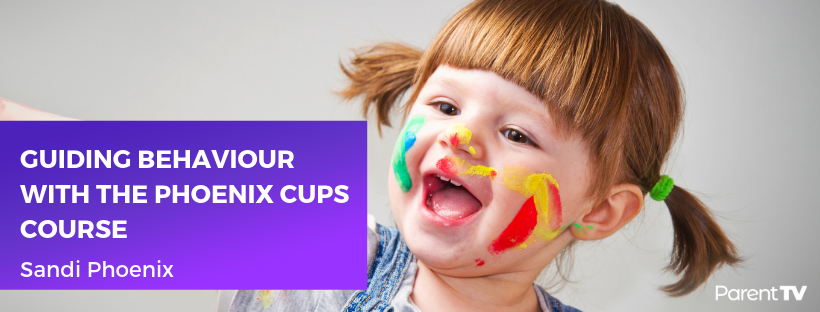Understanding Connection-Seeking vs Attention-Seeking Behavior
Categories: Behaviour
All humans have a basic need for love and connection. This need can vary between individuals, with some needing more love and connection than others. The Phoenix Cup approach to behaviour describes this as having a large Love and Connection Cup, meaning it requires more to fill that need.
While it goes without saying that we all love our children, today’s busy family lifestyle can make it tricky to ensure everyone gets their required dose Love and Connection. As we bustle through the day, getting everyone ready, out the door to their daily activities then back again for dinner, bed and bath, it can be hard to make time for quality connections.
Unfortunately, unmet needs for connection can result in uncooperative behaviour. Behavioural expert Sandi Phoenix suggests looking at ‘bad’ behaviour in these circumstances as ‘connection seeking’ rather than attention seeking behaviour.
When we don’t make time for it, connection seeking behaviour not only makes it harder to get through our busy day but also increases our negative interactions. Negative interactions could be corrections, directions or discipline which all deplete a child’s Love and Connection Cup. In fact, to have balance and positivity in our relationships, behavioural experts say there needs to be 5 positive interactions for every 1 negative interaction.
Personally, when I think about an average morning trying to get my three children out the door on time, most days we are starting with a major positive interaction deficit! No wonder my kids are craving love and connection by the end of the day – which is when I have even less energy to give it.
The good news is that children’s need for love and connection doesn’t get met solely from parents. Kids also get their Love and Connection Cup filled through interactions with their friends, family, teachers and coaches. The unfortunate flipside to this is that they can also have their cup depleted by these interactions too. So if your child has a bad day at school – either through conflict with friends or being told off by teachers, it is likely they will need extra help from you to help fill their Love and Connection Cup at the end of the day.
Connections don’t need to be time intensive, they just need to be meaningful to your child. Just like everyone has a different sized Love and Connection Cup, i.e. a different level of need for love and connection, different things will go towards filling it.
Some suggestions of Love and Connection Cup fillers include:
- One-on-One time – this could be date days, special activities for just the two of you or even just a quite chat at bedtime.
- Read them a story
- Play a game
- Be playful – join in their silliness rather than reprimand it
- Develop a ritual – this could be a special way of saying goodbye, a bedtime routine, or a secret handshake.
- Give them praise
- Tell them what you love about them
- Have cuddle time
- Eat meals together
- Have a shared interest or hobby
To help you out, the founder of the Phoenix Cups approach to behaviour, Sandi Phoenix, has developed a Connection Plan so that you can customise a plan for each child to meet their unique needs.
To find out more about your child’s needs profile and how to meet it, check the ParentTV course ‘Guiding Behaviour with Phoenix Cups’.
This course will help you identify your child’s cups, which are the biggest or most dominant cups and which areas we need to help teach our children how to fill their own cups. You will also learn about different (and often challenging) behaviours that are associated with each cup and how to design new strategies to support different behaviours.

